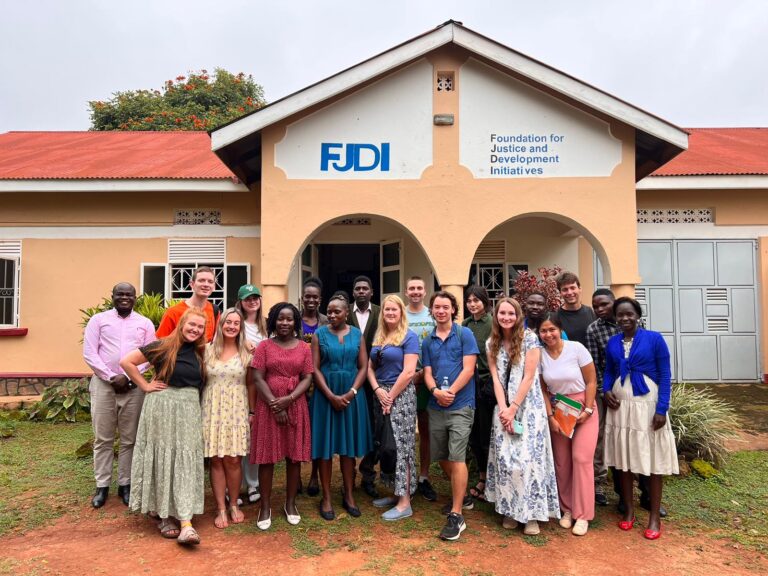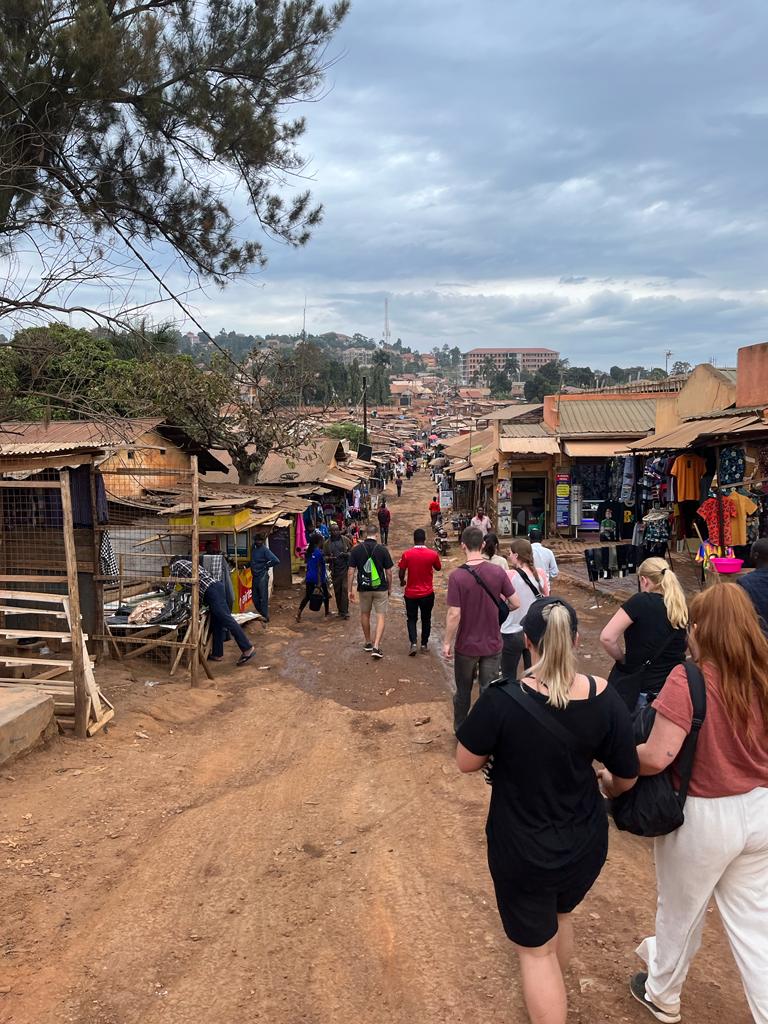
Bringing Theory to Life Through International Experiential Learning
Discover how international experiential learning bridges theory and practice, offering students immersive experiences that enrich their education and global understanding. Dive into real-world learning!
By Gwenna Moss Centre for Teaching and LearningThe University of Saskatchewan’s taught abroad courses aim to transform theoretical knowledge into tangible experiences (this is a form of experiential learning). In Dr. Kirsten Fisher’s 300-level Political Studies course, students explored transitional justice through onsite interactions with governmental, non-governmental, and community organizations in Uganda. This was possible because of Dr. Fisher’s research in these communities and existing relationships. This demonstrates the efficacy of the teacher-scholar model to align what we research with what we teach. This immersive approach to learning enriches students’ understanding, illuminating the nuances of real-world applications of the policies they’d studied.
| Key tip: Leverage the teacher-scholar model, such that existing research partnerships can benefit students, even in the undergraduate whole-class context. |
Venturing abroad cultivates critical thinking and communication skills. Pre-departure preparation includes rigorous readings, reflective writings, and discussions that equip students with the necessary intellectual framework. Interaction with diverse perspectives, especially through engagement with Ugandan students, challenged preconceptions and nurtured global citizenship and intercultural competence. The relationship between students and academics from Ugandan universities was pivotal. Lecturers ‘on the ground’ provided a dynamic, real-time educational experience – some students continued to foster these relationships, quoting their conversations with experts in their final papers and some have continued beyond the scope of the trip. This type of learning is not tourism. Students engage with local communities, which can lead to further involvement, such as fundraising efforts and the pursuit of future opportunities in the country. These ripple effects extend beyond the trip, fostering a sustained commitment to international work.
| Key tip: Set students up with multiple means of engaging with the local context. Different lecturers, presentations, experiences will resonate with different students. |
The transformative power of these experiences is gauged through reflective papers and ongoing dialogues. Students articulate shifts in perspective, reassess their role in the world, and grapple with complex issues, often finding themselves at a crossroads of understanding. The journey is punctuated with iterative feedback – from informal daily interactions to structured evaluations of draft papers and final essays. This process is not only about academic growth but personal evolution.
| Key tip: Design your course to have multiple opportunities for students to reflect and share with each other and you, as the instructor, about their experiences. Effective experiential learning requires a reflective period and we can intentionally design for these opportunities. |

This type of growth requires a certain degree of flexibility as the fluidity of schedules on taught abroad trips mirrors the unpredictability of real life. Adaptability becomes a learned skill as students must remain agile, shifting focus as required and taking time to process new experiences collectively. Dr. Fisher worked to communicate as clearly as possible with students when plans shifted or changed. It’s important to also note that because of the complexities of taught abroad trips, admission to these courses must balance academic achievement with maturity, recognizing the emotional and intellectual challenges ahead. Life in Uganda, with its stark realities, pushes students to confront inequalities and inspires hope for the future. Students and instructors alike prepare for emotional challenges inherent in such trips. Mental health first aid and culturally responsive teaching are integral parts of the preparation, equipping the instructor and participants to navigate the emotional landscape of international experiences. Please connect with Study Abroad services for more information.
| Key tip: Anticipate what types of challenges students may encounter and the skills they would need to address them. Plan to help students gain these skills or target them specifically through prerequisite courses or content. |
Taught abroad programs at the University of Saskatchewan are more than an academic endeavour; they are a pledge to be an active part of the world. For many, it’s not just about learning different subjects but discovering different selves – selves that are more engaged, empathetic, and ready to be what the world needs.
Reach out to the Gwenna Moss Centre for Teaching and Learning for help designing a curricular experience in a rich context such as taught abroad.
Title image credit: Dr. Kirsten Fisher (USask)
This article was created with the assistance of AI tools, as described in the GMCTL AI Disclosure Statement.

